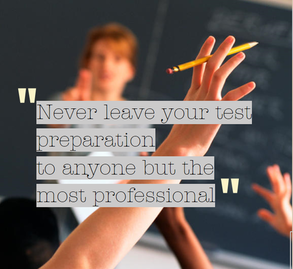Ontario Reading & Writing (Grades 9-12)
|
Test Preparation Services (TPS)
This page gives information about the Ontario, secondary school English curriculum for grades 9-12, specifically Eng1D (grade 9 Academic), Eng 2D (grade 10 Academic), Eng3U (grade 11 university prep)and Eng4U (grade 12 University prep). This page includes the reading & writing skill demands, genres, assessment and links to how a parent can find a tutor to develop reading & writing in an accelerated parallel program.It also provides a short glossary of words in English literature needed for high school studies
Ottawa
Ontario |
For a comprehensive look at the Ontario English curriculum you can look through what is stated in the Ontario Ministry for grades 9-10, grades 11-12, or if your child is going into an IB program or in the midst of an IB program to prepare for the Theory of Knowledge (TOK) or Extended Essay (EE), or if in AP. In this page we will concentrate on the regular grades Eng1D & Eng 2D of grades 9-10 and Eng3U and Eng4U for grades 11 & 12. The purpose is not to reproduce the curriculum wording, as it is a long, wordy curriculum, but to simplify it and save you time reading.
There is no provincial exam in Ontario any more but I will give some information on the variety of assessment tools used by teachers throughout grades 9-12.
What skills are featured in Eng1D, Eng 2D, Eng 3U & Eng 4U
If you read through the curriculums of Eng 1D, Eng 2D, Eng 3U and Eng 4U you will find that the exact same skills are listed. How are they different? Generally, the reading tasks become more challenging and the writing standards become higher. The curriculum features oral and listening skills and do a range of areas such as media studies, but the purpose here is to highlight the reading and writing skills that teachers will develop and assess. I only focus on the academic and university preparation secondary English courses Eng 1D, Eng 2D, Eng 3U and Eng 4U) because generally the applied English courses do not pose a huge challenge for students. I will give a very simplified account of the curriculum and show how that might play out in assignments and tests.
Reading Skills
|
Genres
|
|
:Students will read a variety of texts to:
1. Identify purpose of reading 2. Identify the theme 3. Compare 4. Develop reading strategies before, during and after to aid comprehension a) using visual clues b) list questions c) graphics organizers d) make sketches e) make inferences 5. Find main idea 4. Finding supporting ideas, details 5. Create character profiles 6. Know the organizational plan 7. Making personal connections 8. Extend understanding by making connections to other writings, films, songs etc 9. Analyzing, evaluating and critiquing texts 10. Dealing with unknown vocabulary and processing |
Students will read the following:
1. Informational text - Reports - Instructions 2. Expositions - Persuasive articles - Advertisements 3. Literature - Short stories - Novels - Conventional - Graphic - Poems - Literature - Songs - Plays - Conventional - Short movies |
Writing Skills
|
Genres
|
8. Establish an identifiable voice in your writing, 9. Modify language and tone to suit the form, audience, and purpose
12. Revise drafts to improve the content, organization, clarity, and style using a variety of teacher-modelled strategies
Use knowledge of spelling rules & patterns, Use several resources & strategies to spell familiar & new words Use root words, prefixes, and suffixes to spell longer words; Make spelling generalizations to identify & correct misspellings Use understanding of: Sound-symbol relationships, Word structures, Word meanings, Confirm or adjust meaning by relating words to their context; Check word choice by locating - entry words, - pronunciation keys, - prefixes - information on word origins in online & print dictionaries - antonyms, and homonyms; Use bilingual or first-language dictionaries to find new words Use punctuation correctly to communicate intended meaning Use commas to - separate introductory phrases from the main part - separate words, phrases, - clauses in a series; Use appropriate punctuation to indicate abbreviations & acronyms Use grammar conventions correctly for clear meaning Proofread and correct their writing, using: - guidelines developed with the teacher & peers - an editing checklist specific to the writing task |
.Students will write the following:
- Instructions - Graphic (eg posters, brochures etc) 2. Exposition writing - Rhetorical essays - Book Reviews - Analysis of Exposition articles - Opinion letters 3. Literature analysis writing - Stand-alone - Literary tools - Character analysis - Setting analysis - Theme based analysis 4. Literature Analysis writing - Syntheses - 2 stories - Poem & story - Poem & play - Play & story - multiple poems 5. Literature Analysis writing - Poetry Analysis - Form analysis - Tool analysis - Theme analysis 6. Literature Analysis writing - Play analysis - Theme analysis - Character analysis - Play devices & tools analysis |
Assessment Devices
Students primary assessment for reading and writing are among the following
One important point is that students are often asked to do the writing assignments during class time. Many teachers are leery about giving take home writing tasks. This is due to the proliferation of tools to help writing and unscrupulous parents and tutors who will practically write the project for the students. Also, plagiarism is becoming an important issue for teachers and while sophisticated plagiarism checks are available, teachers often dislike the potential conflict.
There is also a move to steer away from well known literature and to focus more on
1. Canadian literature
2. Less known international writers
3. Indigenous, ethnic minority writers
4. Young adult novels of struggle and resilience
5. Intelligent pop-culture works in songs, graphic novels, movies
6. Student choices in literature as long as it meets with approval
This does not mean you will not face traditional works such as Shakespeare plays and famous dystopian novels but it does mean that consulting outside sources for analysis (eg Spark-notes, Shmoop, E-notes etc) for works that are not as well-known can be more difficult)
- Reading quizzes
- Presentations (group & individual)
- Written texts of different lengths and for different purposes and audiences using a variety of forms
- Exams involving writing
- Visual & media projects relating to literature
- Self evaluation (not generally marked)
One important point is that students are often asked to do the writing assignments during class time. Many teachers are leery about giving take home writing tasks. This is due to the proliferation of tools to help writing and unscrupulous parents and tutors who will practically write the project for the students. Also, plagiarism is becoming an important issue for teachers and while sophisticated plagiarism checks are available, teachers often dislike the potential conflict.
There is also a move to steer away from well known literature and to focus more on
1. Canadian literature
2. Less known international writers
3. Indigenous, ethnic minority writers
4. Young adult novels of struggle and resilience
5. Intelligent pop-culture works in songs, graphic novels, movies
6. Student choices in literature as long as it meets with approval
This does not mean you will not face traditional works such as Shakespeare plays and famous dystopian novels but it does mean that consulting outside sources for analysis (eg Spark-notes, Shmoop, E-notes etc) for works that are not as well-known can be more difficult)
What Mark should a student aim for?
Students need not despair if they are struggling to get top grades in grade 9 but starting from grade 11 it becomes more important for university entry. Ontario policy states that all grade 11 and 12 courses attempted by students must be recorded on Ontario Student Transcripts.
It helps a lot is to ensure you have a good relationship with the English teachers and that can only be ensured through:
1. Showing interest in the tests, projects and class presentations. Often that means through participation, nonverbal signals (eg don't yawn or show boredom)
2. Frequent questions and consultations in and out of class
3. Showing good classroom habits like coming on time, listening attentively and not using phones
4. Following task requirements and consulting if you are unsure. Presumptions can be bad.
5. Avoiding toxic confrontation in a bad mark. Assuming bias or externalizing the bad grade is not a good reflex.
6. Demonstrate that you have a high standard for achievement and asking how to improve.
It helps a lot is to ensure you have a good relationship with the English teachers and that can only be ensured through:
1. Showing interest in the tests, projects and class presentations. Often that means through participation, nonverbal signals (eg don't yawn or show boredom)
2. Frequent questions and consultations in and out of class
3. Showing good classroom habits like coming on time, listening attentively and not using phones
4. Following task requirements and consulting if you are unsure. Presumptions can be bad.
5. Avoiding toxic confrontation in a bad mark. Assuming bias or externalizing the bad grade is not a good reflex.
6. Demonstrate that you have a high standard for achievement and asking how to improve.
Glossary (definitions click here)
|
acronym
alliteration allusion antonym assonance cacaphony collage colloquialism. comma splice concept map consonance controlling idea critical literacy dramatic irony etymology |
figurative language
fishbone map framing questions free verse genres graphic organizer graphophonic cues homonym hyperbole implicit meaning jargon imagery literary device mentor texts |
metacognition.
mind map. mnemonics onomatopoeia oxymoron paraphrase parenthetical referencing point of view. (omniscient, limited omniscient, 3rd, 2nd, 1st person) pragmatics précis rhetorical devices & techniques scaffolding situational irony sound devices story grammar |
.story map
storyboard symbol synonym synopsis syntax synthesis thesis statement tree diagram unity verbal irony word wall word web works cited (references or bibliography) zine |
Tutoring
Our high school English program is detailed on our specific site for it or on the programs page If you need a tutor to help you get through this test check out our tutor page for high school of give us a call at 613 447 1622.




